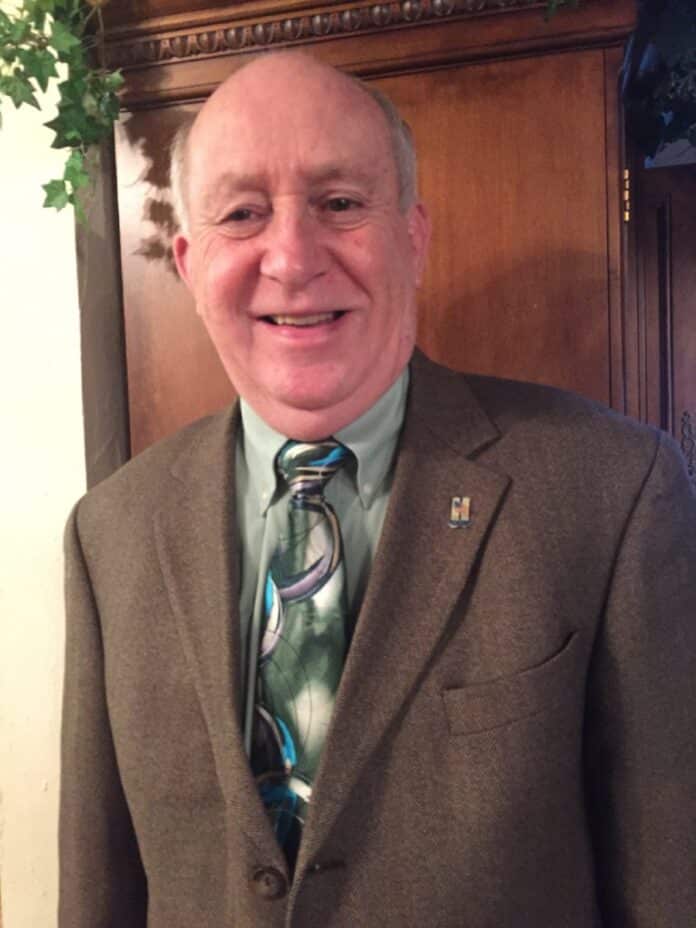What is success? In my office, I have a handmade plaque. On the plaque it simply says: “Success comes before work only in the dictionary.” It was made by a former student of mine in middle school.
How true this is. Lately, I have been studying about great men in the scientific field of electricity: Alexander Graham Bell, George Westinghouse, Thomas Alva Edison and Nikola Tesla. I have been reading about their experiments, their virtues, their failures and their successes. And yes, to some degree, their morality.
Allow me to transport you, the reader, to an era in which there were no iPhones, no televisions and no laptops. Edison had not yet invented the electric light bulb. What did all these great men have in common? They were successful. Tesla, for which the modern-day automobile company is named, was a pioneer in electromechanical engineering. Tesla immigrated to the United States from Serbia. He was part genius, inventor and eccentric and was given to bouts of depression. He is probably best known for harnessing the power of Niagara Falls, and electrifying the city of Buffalo, N.Y., 20 miles away. Alexander Graham Bell gave us the telephone. He spoke those immortal words, “Watson come here I want you.” Thomas Edison perfected the electric light bulb. Incidentally, he failed 10,000 times before he came up with tungsten for a filament. Edison went on to become the most prolific patent holder of all time, reportedly with over 1,000 patents in the United States alone.
I am sure we all have known or met successful people. I know I certainly have. They came from different walks of life. Some were politicians; some were entertainers; some were clergy; and many were business people.
Were you aware that we have successful people here in Hancock County? One such person is a very modest friend of mine. Chris Lytle is a very successful person. He is a firefighter. He is also a retired mixed martial arts champion and all-around good guy. But why is he successful? In the common vernacular, Chris has paid his dues. Here is Chris’s definition of success. “I’ve realized people focus on their successes, but most people fail way more (then they succeed). In a way, that’s what makes the successes so great. Most people can’t handle the failures, and that’s why they don’t continue to try.”
Albert Einstein once said, “You have to learn the rules of the game. And then you have to play better than anyone else.”
It has been said there are three simple rules for life. First of all, if you do not go after what you want, you will never have it. Secondly, if you don’t ask, the answer will always be no. And lastly, if you do not step forward, you will always be in the same place. I submit to you that Bell, Edison, Westinghouse and Tesla personified these three rules in living their lives. Thomas Edison said, “We often miss opportunity because it’s dressed in overalls and looks like work.” Evangelist Chuck Swindoll calls Job, of the Bible, “the greatest of all the men of the east.” No doubt, it was because God had touched his life. However, on further review, we also read that Job had earned that title through years of hard work and honest dealings with others.
This brings us to success, virtue and morality. I asked another local Hancock County friend, Mickey Simunek, for her guidance on the subject. Mickey quickly pointed out that to be successful, one should of course set goals, be self-confident and attempt to be a person of good moral character. I thought her comments about virtue and morality were interesting. The reason being is that in today’s “me first” world, we appear to have lost our moral compass. Also, she mentioned our “private morality” vs. the “public perception” of our morality. I believe we should all strive to live good, moral lives. We should all be cognizant of our “public perception”; we cannot control the thoughts of others.
Were all of these great inventors perfect? Unequivocally they were not. I would like to leave you with a thought from Dr. George W. Crane. Dr. Crane (1901-1995) was an American psychologist and physician. He is best known as a syndicated newspaper columnist. I always liked his comments about importance. He said, “Everyone seems to have an invisible tattoo on their chest. It says ‘I want to be important.'” I submit that this is true and this is what drives the engine of success. Just like the motto on my plaque: “Success comes before work only in the dictionary.”
C.O. Montgomery of New Palestine is a former teacher and former Sugar Creek Township trustee. He is now on the board of Love INC.




